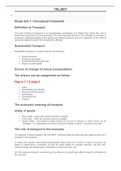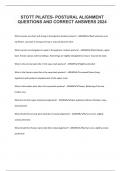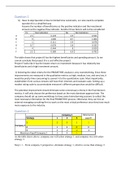Cities as places of experimentation that challenge the hegemony and transcend the
growth imperative
This essay is about planetary urbanization and degrowth. I got intrigued during the lectures
about the phenomenon of planetary urbanism. I immediately questioned myself if and how
urbanization could be compatible with degrowth, as I have written about degrowth in the pre-
master’s course ‘Academic Skills’. I am inspired by the radical academic debate on degrowth
on how to re-politicize the hegemony. Consequently, this essay is about how one could
methodologically approach the following research question: “Could cities be used to
challenge the unending economic growth imperative?”
Today, in academic debate, there is no distinction anymore between the rural and urban. The
“global city” is deeply embedded in international flows of goods, people, materials, and
capital (Radney, 2020). Our world is still being increasingly urbanized; the biggest part of the
world population lives in cities where increasing GDP levels are tied to economic growth and
urban expansion (Koutrolikou, 2018). The urban has thus been subjected to a “high-intensity,
high-impact, earthquake through the worldwide social, economic, regulatory, and
environmental transformations” (Brenner & Schmidt, 2015). Also, according to Brenner &
Schmidt (2015), in the debates on urban sustainability cities are viewed as the ‘front lines’
where environmental crises are most dramatically experienced. Still, research on urban
sustainability remains heterogenous in methodological, thematic, and political terms -
meaning a high variety in. Multiple scholars have made the critiques that this [the
heterogeneity in urban research] is what links to uneven spatial development and struggles for
1
, essay 2022 – Globalising Cities and Hinterlands
environmental and social justice. Planetary urbanization is the main driver of major
irreversible socio-ecological transformations. These transformations are depressingly
unevenly spread (Swyngedouw & Kaika, 2014). Basically, the spread of planetary
urbanization involves four inextricably connected processes: 1) the disappearance of “wild”
zones; 2) the global interconnectedness of territories; 3) the blurred division between town
and country; 3) globalization of urban inequalities (Radney, 2020).
At the complete opposite of planetary urbanization lies degrowth. Degrowth challenges the
hegemony of growth and calls for a democratically led redistributive downscaling of
production and consumption in industrialized countries as a means to achieve environmental
sustainability, social justice, and well-being (Demaria, Schneider, Sekulova, Martinez-
Alier, 2013). Degrowth argues that indefinite economic growth is impossible on a finite
planet; facilitating growth as the overarching goal of socio-economic policies will ultimately
lead to involuntary economic decline with far-reaching social and political consequences
(Weiss, Cattaneo, 2017).
“It is easier to imagine the end of the world than changes in the ecocapitalist order and its
inequities” (Jameson, 2003).
I cannot think of a more urgent quote to emphasize the importance of my orientation within
the theme of planetary urbanism – and the lack of degrowth accepted plans. It takes courage
from academic scholars, as well from state, market, and civil society to see that a turn towards
degrowth is required now more than ever.
2










